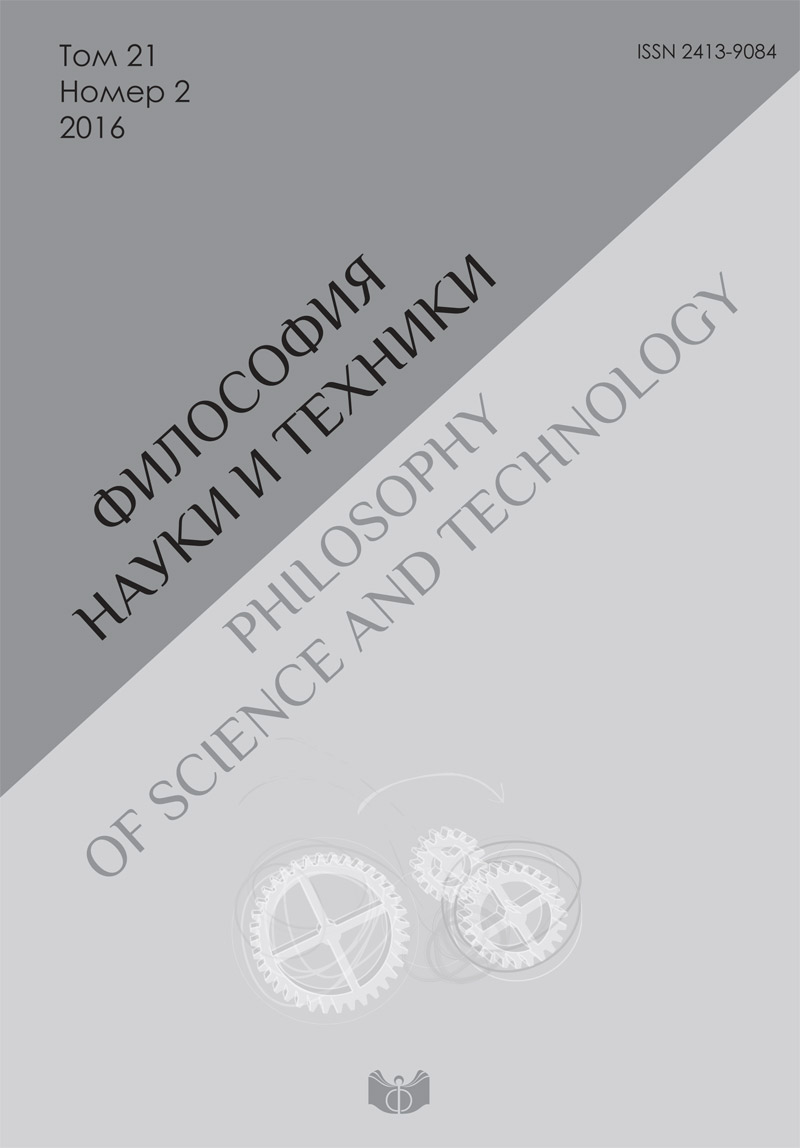Paradigm of complexity in perspective of philosophical strategy of Gilles Deleuze. Papers of the “round table”
DOI:
https://doi.org/10.21146/2413-9084-2016-21-2-149-181Keywords:
complexity, interdisciplinarity, transdisciplinarity, sense, rhizome, communication, context, entanglementAbstract
The round table rises important questions – the questions concerning developments of the conceptual apparatus which would provide constructive movement within the limits of a complexity paradigm. These problems concern the status of the such paradigm, how it is accepted or not accepted in natural-science and philosophical traditions, what influence it renders to express its specificity on description languages. Different aspects and ways of understanding of complexity are considered in a context of the conceptual strategy which is offered by the French philosopher Gilles Deleuze. During the discussion an attempt of rethinking the relation of methodology and ontology, parts and whole, a text and a context etc. is undertaken. Also the problem that draws attention of the participants of a round table is the conceptualization of the opposition “simple-complex”. Within the limits of the discussion on the dichotomy “simple-complex” possible approaches to complex thinking are considered to construct the concept “complex vision of the world”. In this aspect the construction ontology of nonclassical type, the ontology, which is based not on static vision of the world, not on identity, but on dynamics, on becoming, is discussed. The accent is done on dynamics and on removal of classical dichotomies, for example on removal of dichotomy “methodology-ontology”. This suggests a new postnonclassical ontology and special type of methodology. The special attention is given to the problem of observer, considering that the conceptual character “observer of complexity” is found almost in all later works of Deleuze. Thus the emphasis is made on a role of recursion and communications during such observation. In this context complexity is seen as a recursive process between integrity and partiality which basic premise is the idea of distinction. The observer of complexity is the observer creating distinctions, staying in the nonequilibrium, uncertain situation which is open for the future having in the past the set of causes and effects for retrospective explanations which however cannot serve as a support for the determined forecasts of the future events. Position, according to which it is necessary to refuse the position of the external observer, considering this or that state of affairs from outside, is put forward. Moreover, we have in mind postnonclassical complexity, but not difficult complex problems that we have to solve. And this fact can be grasped from a number of practices related primarily to innovation activities. Also the special attention is given to postnonclassical control strategy of complex systems which can be considered in terminology of Deleuze as movements from “virtual object” to “the virtual subject”. The considerable attention in performances is given to the status of truth in a paradigm of complexity (in perspective of philosophical strategy of Deleuze). At last, the considered theme is developed in a context of congruence of philosophies of Deleuze with philosophical and research strategy of Edgar Moraine (the author of the term “paradigm of complexity”) and also with the theory of autopoiesis offered by Francisco Varela and Humberto Maturana.











